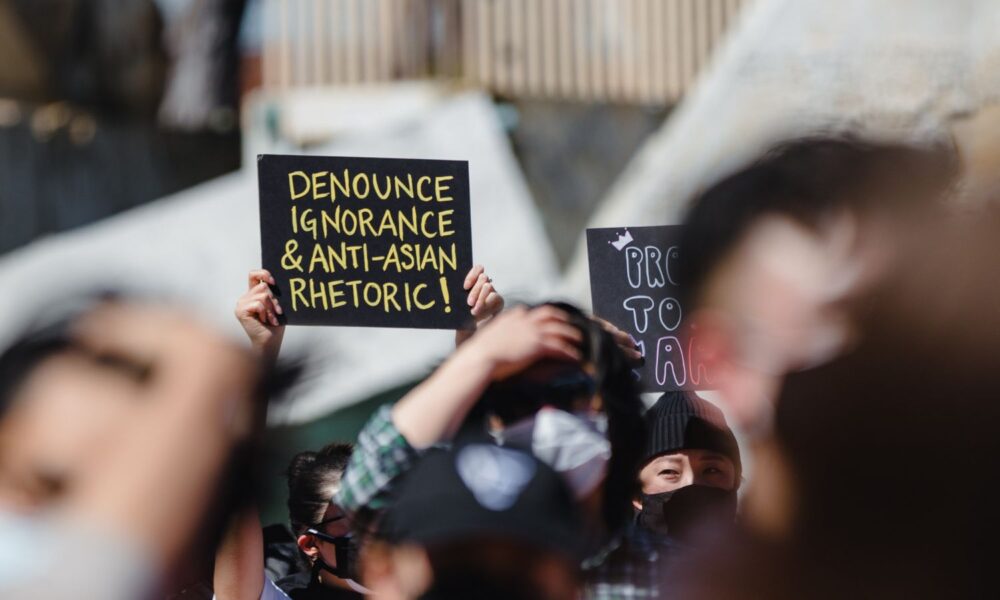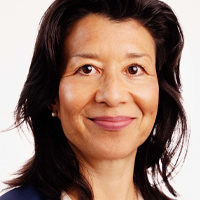My grandfather, Dr. Edward Ching-Te Chao, was a big personality in our family and a legend in his field. A brilliant geologist, he was recruited in the 1940s by the United States Army and then by the United States Geological Survey, at the height of the McCarthy era. There, he was appointed a principal investigator for NASA on the Apollo project, where he designed the United States’ first lunar sampling program and sent Neil Armstrong to the moon.
Over the course of his 45-year career serving as a scientist for the US government, his research shaped the fields of minerology and geophysics and generated billions of dollars for industry. When he died in 2008, his Washington Post obituary read “A Rock Star of Geology.”
My Y-Kung, as I called him, was grateful for the opportunity to achieve as much as he did for science, for humanity, and for the United States. While the Cultural Revolution separated him from his parents and siblings in Beijing for many years, he dedicated himself to forging exchanges between scientists from the US, China, Mongolia, Europe, and beyond. The results of those collaborations live on today around the globe.
But my grandfather’s experience as a lead scientist for the US government was not only about the satisfaction of scientific discovery.
Despite his groundbreaking achievements, he experienced persistent racism, hostility, and xenophobia in his field, on his team, and in the institutions he served. This trauma reverberated throughout his career, and in all his relationships.
Unfortunately, my Y-Kung’s treatment as a Chinese scientist working in the US was not an isolated incident. Nor is it uncommon today. In recent years, rates of racial profiling of scientists of Asian descent in the United States have risen steeply, according to a 2021 study by the Committee of 100. One study participant, a biophysics professor, told the researchers, “Even though I do not work in a sensitive field, nor do I deal with any privileged or proprietary information, I am increasingly hesitant to interact or collaborate with scientists from China for fear it may be misconstrued by overzealous authorities as a conflict of national interest.” Another said, “I sometimes feel my Chinese identity may be the limiting factor for my career advancement in the U.S.”
This racist targeting is not only horrific for thousands of AAPI scientists and STEM students, but it is devastating for science. And it doesn’t have to be like this. I want to think that my grandfather’s decision to live and work in the US—and my family’s continued presence here—reflects the potential powerful benefits of cross-cultural exchange and collaboration.
Dangerous rhetoric, deteriorating relations
In academia, in the news, and in our own lives, we can see how anti-Asian racism and xenophobia in our culture, politics, and US foreign policy affects our relationship with China, and with people of Chinese and wider Asian descent in the United States. Today, US-China relations are headed in a dangerous direction. The language and behavior of the leaders of our planet’s two most influential governments are harming ordinary people, holding up progress on climate change, and increasing the threat of nuclear war.
We need to change course—and at UCS, we believe we can. Through our Global Security Program, we’re working to clear up misunderstandings that exaggerate fears, and to facilitate non-governmental dialogue that can lead to better official relations.
At home, xenophobic rhetoric and rash government behavior are hurting innocent Chinese Americans, and other Asian Americans, caught in the crossfire of unhealthy US-China competition. Chinese espionage and influence operations within the United States have provoked sweeping and indiscriminate US government investigations into the private lives of innocent Chinese American scientists—destroying their careers and impoverishing their families. President Biden shut down one of the most egregiously incompetent FBI initiatives responsible for many of these injustices. But there is a lot more to do.
UCS is working with sympathetic members of Congress to remove problematic provisions from new China-related legislation to prevent more innocent people from becoming casualties of an intensifying ideological conflict between China and the United States.
Sadly, there is evidence that the intensifying competition between the two governments is careening towards conflict. China’s disturbing decision to build hundreds of new nuclear missile silos should concern every American. We could have prevented that decision if the US government had not walked away from international nuclear disarmament negotiations in the late 1990s. But looking back with regret won’t save us from a future nuclear war.
The best way to respond to China’s expansion and modernization of its nuclear arsenal today is to get back to the international negotiating table, not to spend a trillion dollars we don’t have building more bombs of our own. We have too many already, and our politicians seem to have forgotten that numbers do not really matter when one nuclear bomb can destroy an entire city, and fewer than 100 can destroy human civilization.
UCS is bringing Chinese and American arms control experts together to try to find common ground and prevent a new nuclear arms race.
Healthy competition, not conflict
Every scientist and expert in the world who is working to address the existential threat of the climate crisis understands that the governments of the world’s two largest and most capable economies need to work together to find just, equitable, and effective solutions to the problem. Healthy competition to discover and disseminate appropriate technologies, especially to the rapidly developing economies of the Global South, would benefit everyone. Unhealthy US-China competition that divides the world into blocs, inhibits the development and transfer of technology, and obstructs the negotiation of international climate agreements is a recipe for global collapse.
For decades, UCS has played a role in helping those negotiations move forward—and we will continue to encourage US officials to take a constructive approach to climate talks with China.
Over the past year, we’ve been encouraged by the resumption of high-level US-China talks. Secretary of State Anthony Blinken, Treasury Secretary Janet Yellen, and Climate Envoy John Kerry had constructive visits with their counterparts in Beijing; President Biden appears willing to re-establish productive communication, albeit with guardrails.
The urgency of the climate crisis and the rapidly growing danger of a nuclear war require a change of direction from our current devolving rhetoric. The sooner our leaders recognize that, the better for us all.

